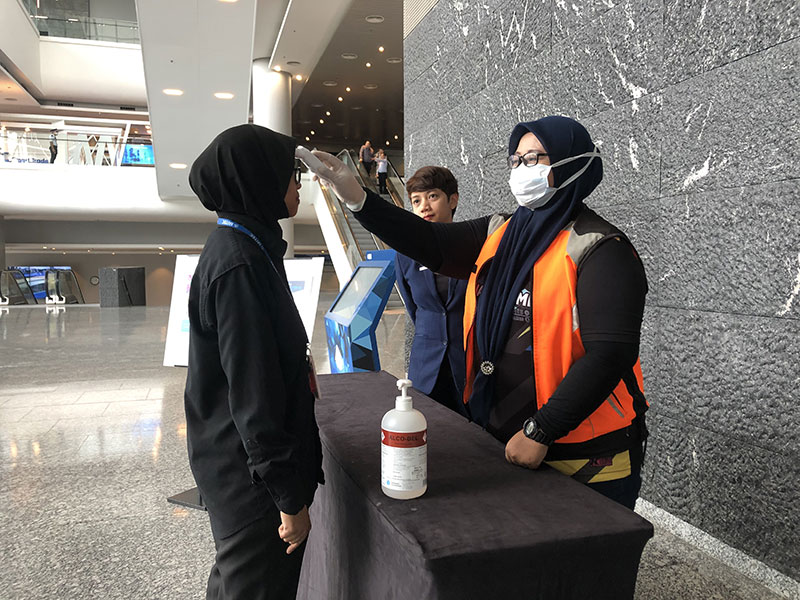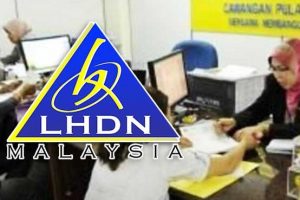Standard Operating Procedure SOP for Business Resume in Malaysia

The Government has given the go-ahead for most businesses to resume work on 4 May 2020. They will need to abide by the standard operating procedure (SOP) for resuming work in Malaysia after MCO. These standard operating procedures are there to ensure all aspects of health and safety are given the utmost priority. It is also meant to lower the risk to the public and business premises while maintaining ensuring the health sector will not be severely affected.
What is Standard Operating Procedure (SOP)?
Standard Operating Procedures (SOP) is a process document that describes in detail the way that an operator should perform a given operation. SOPs involve the purpose of the operation, the equipment and materials required, how to perform the set-up and operations required for the process, how to perform the maintenance and shutdown operations carried out by the worker, a description of safety issues, trouble-shooting, a list of spare parts and where to find them, illustrations, and checklists. The SOP is one of many process documents which is needed for consistent operation of a given process, with other documents involving process flow charts, material specifications, and so forth.
Standard Operating Procedure For Businesses in Malaysia
Among the Guide for Work Place and SOP Procedures to resuming work in Malaysia include wearing facemasks and social distancing. Other SOP procedures applicable to work environments include:
- Employees must stay home or notify an administrator when feeling unwell
- Should an employee develop symptoms on the job, they must avoid contact with other employees. They must inform their supervisor immediately.
- Telecommuting should be encouraged where feasible
- Implementing a no handshake policy
- Implement staggered work schedules
- Onsite workers must maintain a physical space of 1 metre apart
- In-person meetings must be limited. If they are unavoidable, they must be kept short
- Encourage employees to eat at their desks
- Do not congregate in certain areas of the workplace and photocopier rooms
- No non-essential work travel
- No non-related work gatherings
- No work-related gatherings (meetings, work functions, any activities after work)
Employers are required to carry out the following measures:
- Communicate with employees about COVID-19.
- Advice employees to maintain good hygiene etiquette
- Send communication reminders about enforcing good hygiene practices
- Provide updates regularly pertaining to the COVID-19 situation. This includes providing educational material
- Supervisors must monitor employees for symptoms.
- Encourage employees to conduct regular temperature checks
- Where possible, a travel history declaration should be obtained from employees
- Relieve any staff who are sick
- Encourage staff to wear surgical masks if they develop any symptoms
- Avoid contact with other employees if they develop any symptoms
- Conduct appropriate measures to minimise stress among employees
- Conduct mental health assessments for staff
- Monitor absenteeism and sick leave among staff members
Employees returning to work are advised to adhere to the following:
- Maintain good personal hygiene always
- Consider eating meals at your desks
- Limit the sharing and handling of food at work
- Monitor and stay updated on the latest information about COVID-19
- Should symptoms develop, alert your supervisor immediately, weak a mask, seek medical treatment and avoid contact with others
All workplaces must carry out the following actions:
- Regularly disinfect the office and office equipment.
- Implement required sanitisation at the office entrances
- Easy access to regular handwashing for employees
- Maintain toilet facilities and floor drains
- Regular disposal of rubbish
- Adequate liquid soap and disposable towel supplies
- Implement contingency measures in anticipation of staff shortage
- Implement alternate communication measures in place of in-person meetings
- Ensure precautionary measures are taken during indoor events
Benefit of Standard Operating Procedure for Businesses in Malaysia
Creating more structure in your business activities can dramatically improve productivity and reduce costs. Not every organization will benefit from this kind of standardization, and it depends on you, the business owner or manager, to determine if there are work processes that can be duplicated every day within your company and if it’s worth teaching those processes to employees through SOPs.
Many great benefits can be realized by bringing standardizing processes and documenting formal SOPs to your organization.
- To provide people with all the safety, health, environmental and operational information necessary to perform a job properly. Placing value only on production while ignoring safety, health and the environment is costly in the long run. It is better to train employees in all aspects of doing a job than to face accidents, fines, and litigation later.
- To ensure that production operations are performed consistently to maintain quality control of processes and products. Consumers, from individuals to companies, want products of consistent quality and specifications. SOPs specify job steps that help standardize products and, therefore, quality.
- To ensure that processes continue uninterrupted and are completed on a prescribed schedule. By following SOPs, you assist in avoiding process shut-downs caused by equipment failure or other facility damage.
- To ensure that no failures occur in manufacturing and other processes that would harm anyone in the surrounding community. Following health and environmental steps in SOPs ensures against spills and emissions that threaten plant neighbors and create community outrage.
- To ensure that approved procedures are followed in compliance with company and government regulations. Well-written SOPs contribute to ensuring that government regulations are satisfied. They also demonstrate a company’s good-faith intention to operate correctly. Failure to write and use proper SOPs will only signal government regulators that your business is not serious about compliance.
- To serve as a training document for teaching users about the process for which the SOP was written. Thorough SOPs can be used as the basis for providing standardized training for employees who are new to a particular job and for those who need re-training.
- To serve as a checklist for co-workers who observe job performance to reinforce proper performance. The process of actively caring about fellow workers involves one worker coaching another in all aspects of good job performance. When outlining the correct procedures in a good SOP, any co-worker can use that SOP to coach another and help improve work skills.
- To serve as a checklist for auditors. Auditing job performance is a process similar to the observation mentioned previously, only it usually involves record-keeping. SOPs should serve as a solid foundation when developing detailed audit checklists.
- To act as a historical record of the how, why and when of steps in an existing process. This provides a factual basis for revising those steps when a process or equipment are changed. As people move from job to job within and between companies, unwritten knowledge and skills disappear from the workplace. Properly maintained written SOPs can chronicle the best experience that can serve new workers when older ones move on.
- To act as an explanation of steps in a process for review in accident investigations. Although accidents are unfortunate, view them as opportunities to learn how to improve conditions. A good SOP gives you a basis from which to start investigating accidents.




